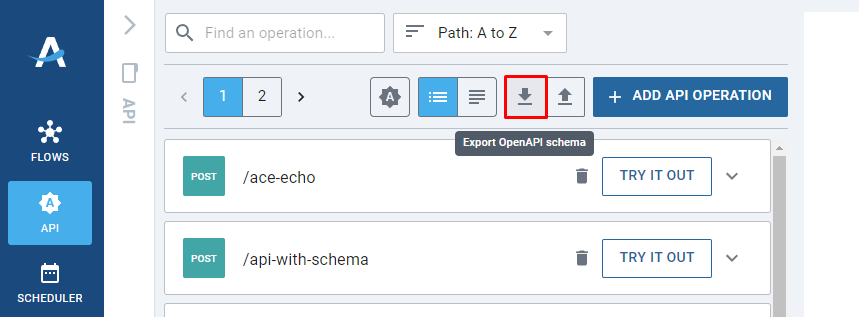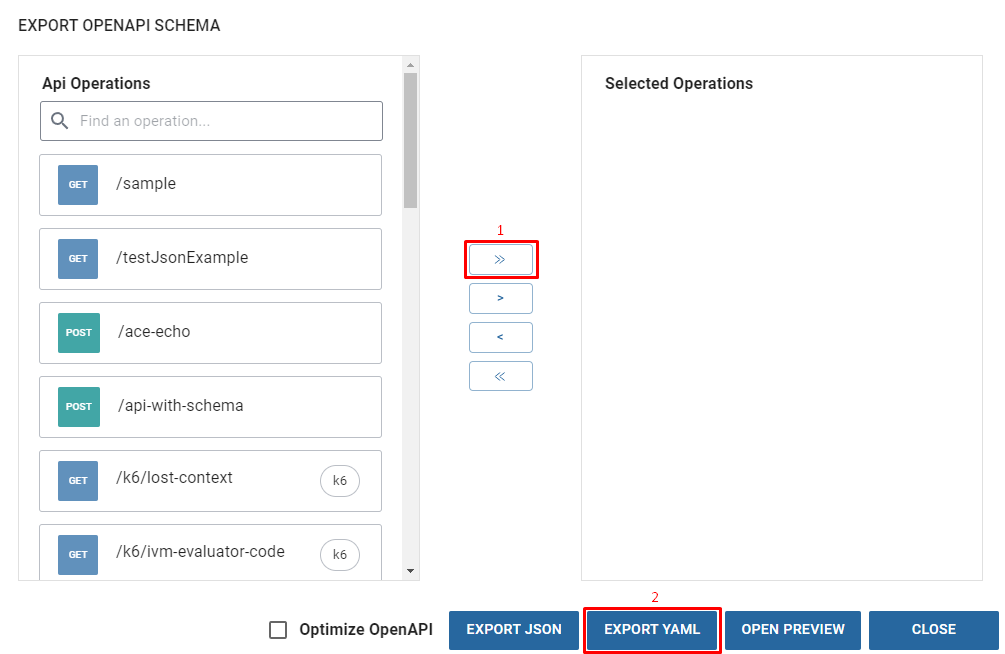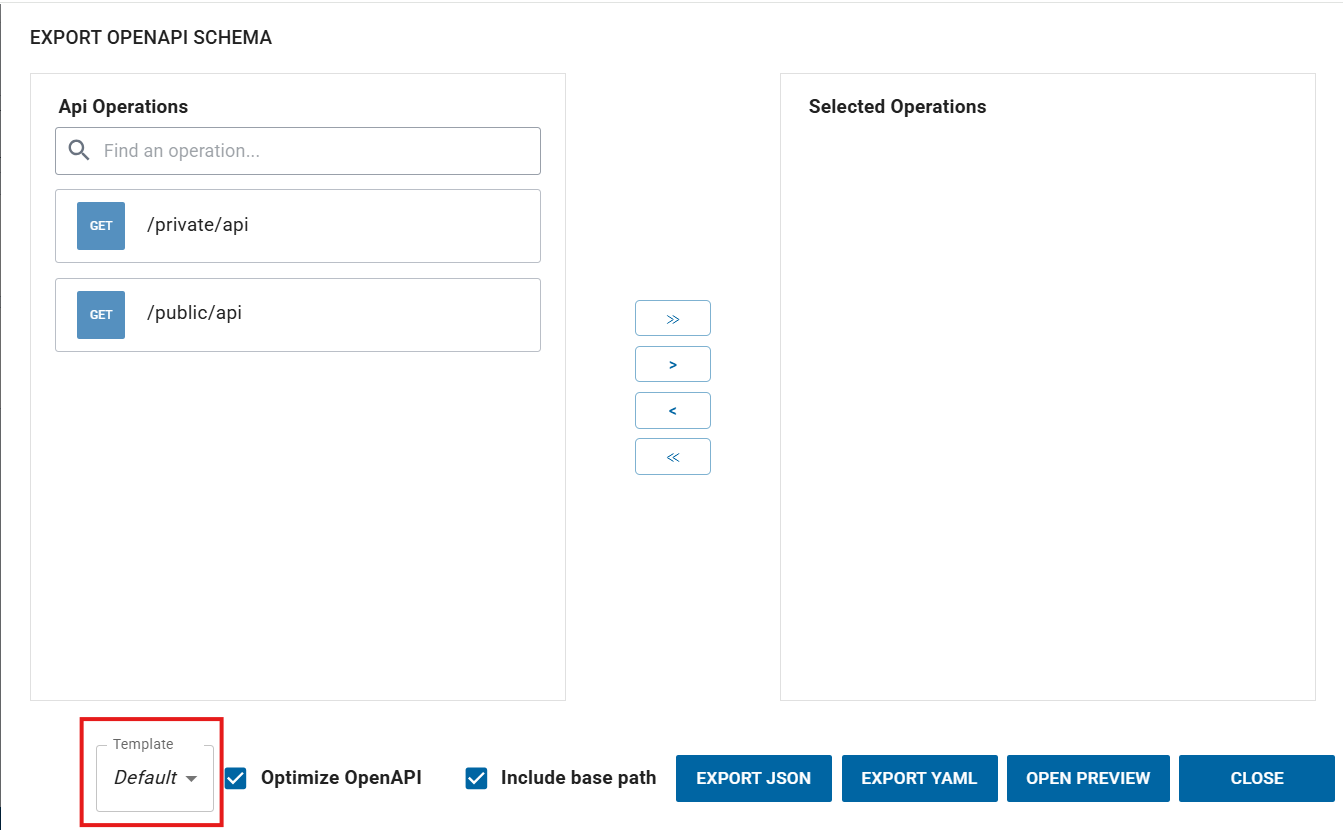Export APIs
ACE allows exporting APIs in OpenAPI 3.0 format (also known as Swagger).
During export ACE generates OpenAPI 3.0 specification based on the selected APIs and schemas.
The exported specification contains all the necessary information to call the APIs, including the request and response schemas.
The export screen will offer to select all APIs located in the currently selected folder.
To export APIs, follow these steps:
- Click on the
Export OpenAPI schemabutton in the toolbar of the API Builder - Select the APIs you want to export
- Click on the
ExportbuttonOptimize OpenAPIoption automatically fixes some of the most common issues in the exported OpenAPI schema like emptyrequiredoption in schemas
See visual guide below:
Export OpenAPI schema button

Export OpenAPI dialog

OpenAPI templates
It is possible to specify an OpenAPI template to use during API export. A template is a partial OpenAPI 3.0 document that provides predefined structure or metadata for the final exported schema.
Templates can include common fields such as:
API info (title, description, version)
Global servers
Custom tags or external documentation
During export, the selected APIs and schemas are merged into the chosen template. This allows for consistent formatting, documentation standards, and reusability across multiple API exports.
To use a template during export:
Select a template from the OpenAPI template dropdown in the export dialog (
see example below)The selected template will be used as the base of the generated OpenAPI document
All selected APIs and schemas will be inserted into the appropriate sections (e.g., paths, components)

Templates are optional. If no template is selected, ACE generates a complete OpenAPI document from scratch.
Creating templates
OpenAPI templates must be created and maintained by the user. These are standard YAML files that follow the OpenAPI 3.0 specification format. Templates should contain the desired static content—such as metadata, server URLs etc. that will be reused across multiple exports.
To use a custom template in the export process, simply create the file with the required structure and save it in openapi-templates folder in your ACE workspace.
If such folder does not exist then add it to the root folder of your workspace same as flows or apis.
Once available, templates will appear in the OpenAPI template dropdown for selection during export.
openapi: "3.0.0"
info:
title: "Dynamic apis template"
description: "List of dynamic apis"
version: "1.0.0"
tags:
- name: pets
description: Everything about your Pets
externalDocs:
url: http://docs.my-api.com/pet-operations.htm
- name: store
description: Access to Petstore orders
externalDocs:
url: http://docs.my-api.com/store-orders.htm
Deployed APIs and templates
Templates can be used when user wants to retrieve OpenAPI schema of deployed APIs. To achieve this user needs to:
- deploy template (done during workspace deployment)
- specify Runtime server environment variable
ACE_OPENAPI_TEMPLATE_FILE_NAMEwhere value is the name and extension of template file (example: ACE_OPENAPI_TEMPLATE_FILE_NAME=openapi-template.yaml)
When these steps are executed retrieved OpenAPI schema will use template as its base. If this variable is not specified default builtin template will be used.